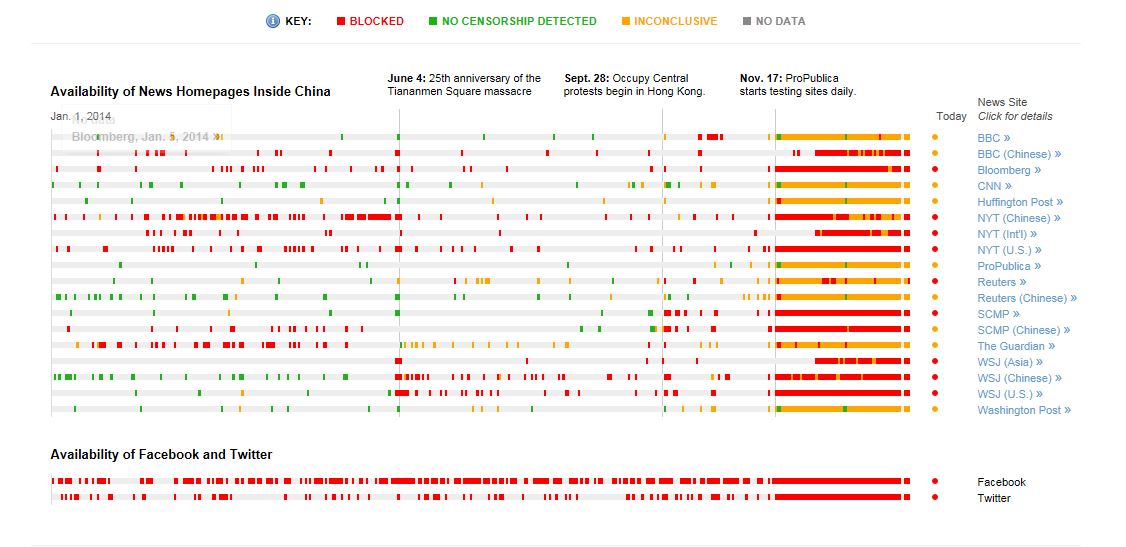When Xi Jinping emerged as the likely successor to the Chairmanship of the Chinese Communist Party (CCP) in 2008, there was hope among Western leaders that he would usher in a more open and politically pragmatic era for China. After all, Xi’s generation is largely removed from the revolutionary struggle of the 1940s, having climbed the ranks of the CCP in the post- reform era of Deng Xiaoping.
Unfortunately, as Freedom House’s Sarah Cook notes in her comprehensive new report, “The Politburo’s Predicament,” the Xi reign has taken a more repressive turn. In an effort to pursue the CCP’s contradictory agenda of economic liberalization and total political control, Xi has centralized power and sought control of information flows in increasingly aggressive and expansive ways.
The report builds upon the research Cook conducted for a 2013 CIMA report entitled “The Long Shadow of Chinese Censorship” which paints a disturbing portrait of the CCP censorship beyond its borders.
In addition to the highly publicized blockage of certain social media platforms and international news sites, the CCP has expanded the scope of its censorship to include “previously tolerated activities, topics, and individuals.” For example, public health and safety issues have been subject to the most censorship activity in recent years. This perhaps reflects the growing list of domestic issues sparking dissent in the country.
The report covers an extensive list of strategies and tools that the current regime uses to control information and increase pressure of civil society, the media and individual citizens. But perhaps the most compelling section of report is when Cook discusses the “limitations of censorship and repression.”
CCP censorship is galvanizing Civil Society
The report discusses the increasingly dynamic and “resilient” civil society in the country. “People who previously would not have become involved in challenging corruption or rights abuses by the regime are increasingly willing to add their voice or even take to the streets, to demand change,” Cook says.
Ironically, a key driver of China’s growing civil society might actually be the regime’s efforts to censor and suppress information flows and political activity in the country. “The rise of civil society that is more explicitly political in its goals, agenda and language is a reaction to greater repression. Politicization comes of day-to-day interactions with the legal problems and larger political system,” Cook writes. In short, censorship could be politicizing the Chinese public.
An opportunity for the international community?
Despite CCP efforts to block information in China, the Chinese people excel at outwitting censors. Information still flows relatively freely in the digital space, where the government lags behind a savvy generation of internet users. Still, China remains a difficult place for international donors and advocates to affect change in a climate where information and media are so relentlessly targeted. So where can donors and other international actors effect change?
Among the Freedom House report’s many recommendations for the international community, one item is particularly noteworthy. The report recommends the formation of “umbrella organizations” to unify disparate efforts to affect change in the country, and to help raise awareness inside China of instances of censorship and repression.
Since there appears to be organic growth in the dynamism and courage of Chinese civil society, perhaps one of the most powerful roles the international community can play is as a facilitator of networking and information-sharing to help promote greater interaction and collaboration among various groups working for political change across the country. International actors should empower activists by building off of the indigenous Chinese talent for overcoming censorship in the digital space to help groups form a more collective movement to counter the brutal repression and censorship that has come to define the Xi Jinping era.


Comments (0)